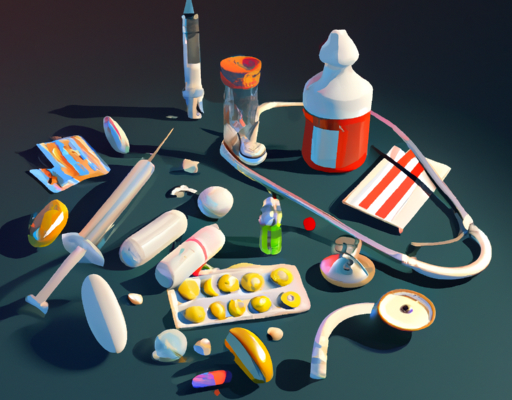Background
Type 1 diabetes is an autoimmune disease in which the body’s own immune system attacks and destroys the insulin-producing cells of the pancreas. While the exact cause of Type 1 diabetes is unknown, it is believed to be the result of a combination of environmental and genetic factors. Without insulin, the body’s cells cannot access energy from glucose, so the body cannot survive. People with Type 1 diabetes are reliant on regular injections of insulin in order to regulate their blood sugar levels and survive. Despite the advances in diabetes treatment, there is still a need to find better ways of producing insulin and to make it more accessible and affordable to those who need it.
Causes of Type 1 Diabetes
Type 1 diabetes is a chronic condition in which the body stops producing enough insulin. Insulin is a hormone that helps the body to absorb and use glucose, or sugar, from the foods we eat. When the body does not produce enough insulin, the body’s cells cannot access the glucose they need for energy, and blood sugar levels rise. This can lead to serious health issues. The exact cause of Type 1 diabetes is unknown, but it is believed to be an autoimmune disorder that affects the pancreas, the organ responsible for insulin production. Research suggests that genetic and environmental factors, such as viruses, could be contributing factors. It is also possible for a person to have a combination of genetic and environmental factors that lead to Type 1 diabetes.
Role of Insulin
Insulin plays a key role in the health of individuals with type 1 diabetes. This crucial hormone helps maintain a healthy balance of glucose in the bloodstream, thus avoiding dangerous complications associated with diabetes. In type 1 diabetes, which is an autoimmune condition, the body fails to produce insulin, leaving individuals reliant on insulin injections or pumps to regulate their blood sugar levels. Treatments with insulin can be extremely effective in controlling blood sugar levels and reducing the symptoms of diabetes, including fatigue and vision problems. Additionally, managing diabetes with insulin injections can help lower the risk of long-term complications such as heart disease, kidney failure, and nerve damage. Clearly, insulin can be life-saving for individuals with type 1 diabetes, so understanding the importance of this hormone is essential if you are living with this condition.
Treatment
Type 1 diabetes is a serious health condition that requires careful management. Treatment of this condition usually involves taking insulin to help regulate blood sugar levels. Insulin is produced naturally in the body, but in type 1 diabetes, the pancreas is unable to produce enough insulin to meet the body’s needs. As a result, people with type 1 diabetes must take supplemental insulin to control their blood sugar levels. The following are the main methods of insulin production for type 1 diabetes:
- Synthetic Insulin – Synthetic insulin is a laboratory-produced form of human insulin. It is manufactured using recombinant DNA technology and is identical to the insulin that is naturally produced in the body.
- Animal Insulin – Animal insulin is derived from pigs and cows. It is not identical to human insulin, but it is still effective in controlling blood sugar levels.
- Human Insulin – Human insulin is derived from the pancreas of a human donor. It is identical to the insulin that is naturally produced in the body, making it the preferred choice for many people with type 1 diabetes.
Insulin is a critical component of managing type 1 diabetes, and the methods of insulin production should be discussed with a doctor to ensure that the best treatment plan is chosen for each individual.
Synthetic Insulin
Synthetic insulin is a viable, cost-effective solution for treating type 1 diabetes. Synthetic insulin is identical to the insulin molecules produced by the body and is used by individuals to control their blood sugar levels. It is the same type of insulin used by the body, meaning it is safe, effective and well-tolerated. Synthetic insulin is produced through a variety of chemical processes, and can be easily injected into the patient. It works quickly and provides immediate relief from symptoms. Synthetic insulin gives patients the freedom to control their diabetes and live a normal life. Without it, living with type 1 diabetes could be next to impossible. Synthetic insulin helps type 1 diabetes patients take their health and well-being into their own hands.
Genetic Engineering
Genetic engineering has become an increasingly attractive option for treating type 1 diabetes. The desired outcome is to increase the production of insulin in the body, which is a hormone that helps to regulate the amount of glucose in the bloodstream. To achieve this, scientists have conducted research into using genetic engineering techniques to create transgenic animals that are capable of producing large amounts of insulin. Research has shown that these animals can decrease the amount of glucose in the bloodstream and make it easier to manage blood sugar levels in type 1 diabetes patients. While the research is still in its early stages, this technology could be a potential solution to increasing insulin levels in patients with type 1 diabetes.
Future Outlook
The future outlook for those with type 1 diabetes and the production of insulin is a relatively positive and optimistic one. Advances in medical technology have led to the development of insulin pumps, continuous glucose monitoring devices and other devices to help those living with diabetes better manage daily insulin need. With continued medical research and development, it is likely that better treatments, devices and even a cure for type 1 diabetes can be achieved in the future. Many organizations are dedicating resources to further research, increase awareness and develop programs to help people with diabetes live healthier lives. With the commitment and partnership of both private and public sectors, we may one day see the end of this chronic illness.





No Comments